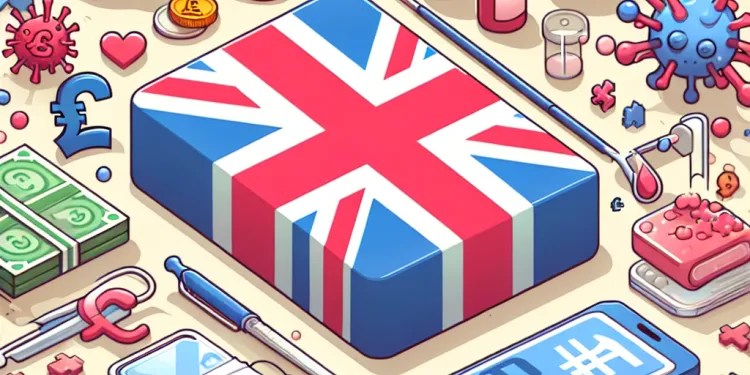
Find Help
More Items From Ergsy search
-
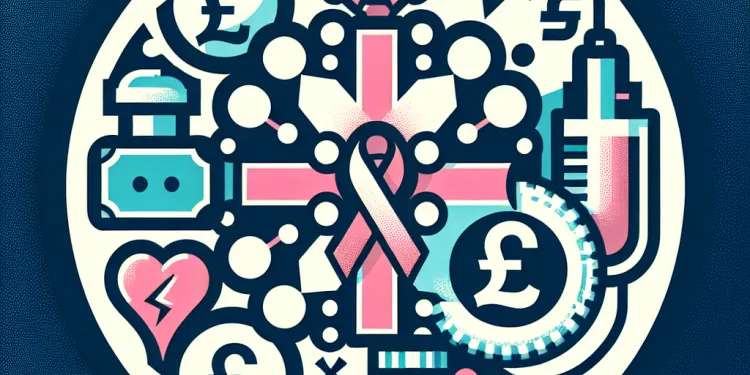
Are there symptoms of an HPV infection?
Relevance: 100%
-
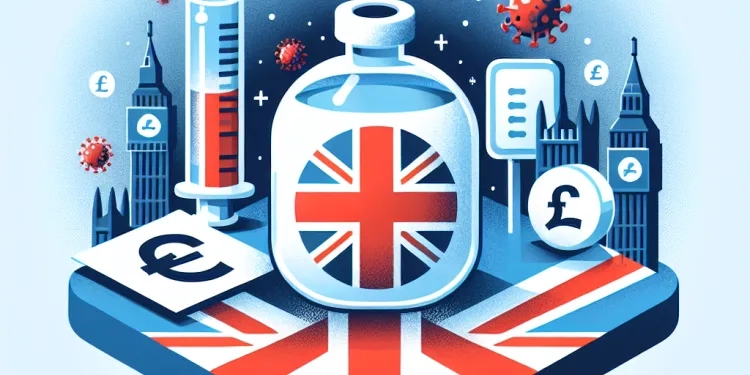
What are the symptoms of Nipah Virus infection?
Relevance: 92%
-
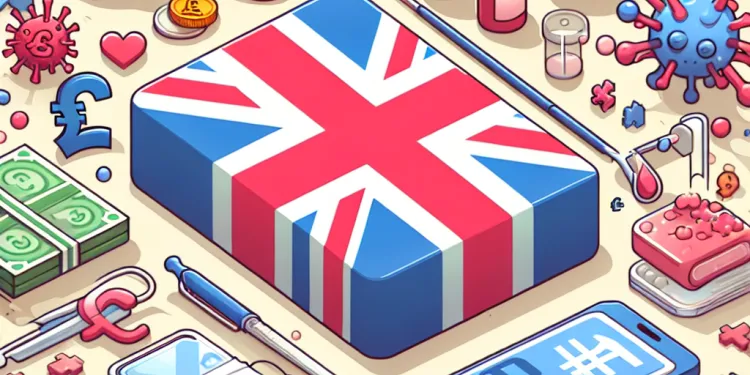
How soon do symptoms appear after infection?
Relevance: 88%
-
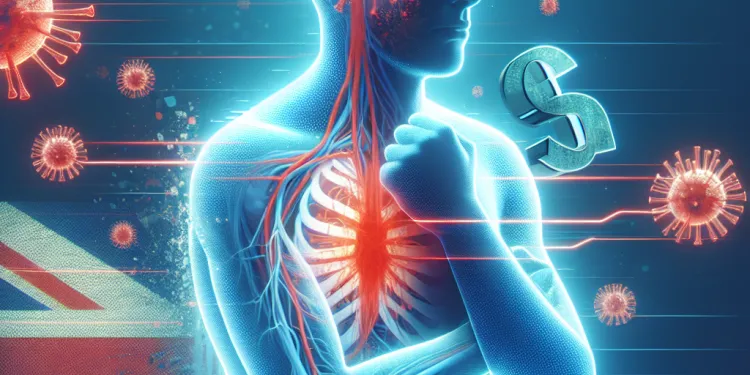
What are the symptoms of Chikungunya virus infection?
Relevance: 73%
-

Mycobacterium chimaera infection
Relevance: 70%
-
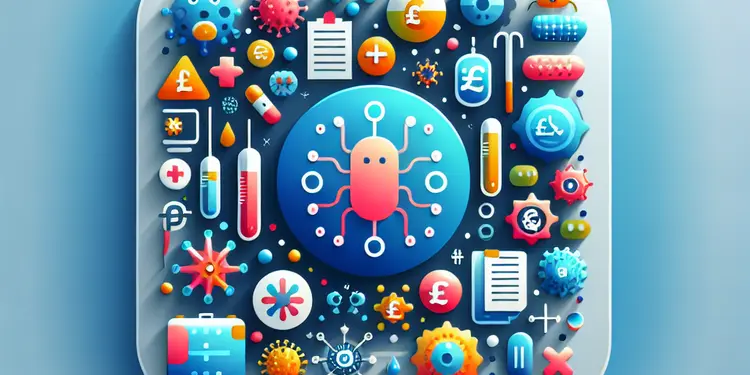
Are E. coli infections contagious?
Relevance: 67%
-
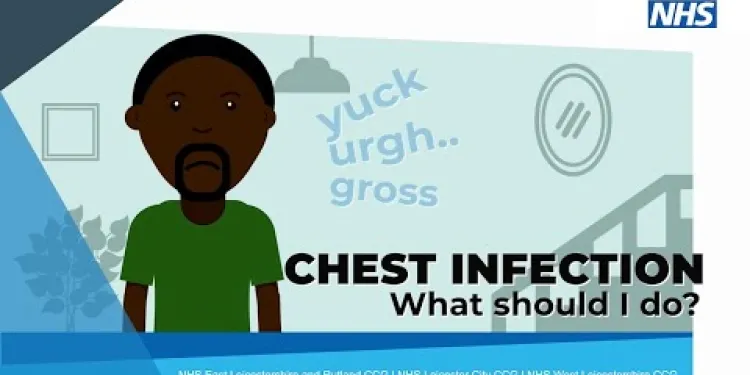
Chest infection: what should I do?
Relevance: 67%
-

Can E. coli infections be treated?
Relevance: 67%
-
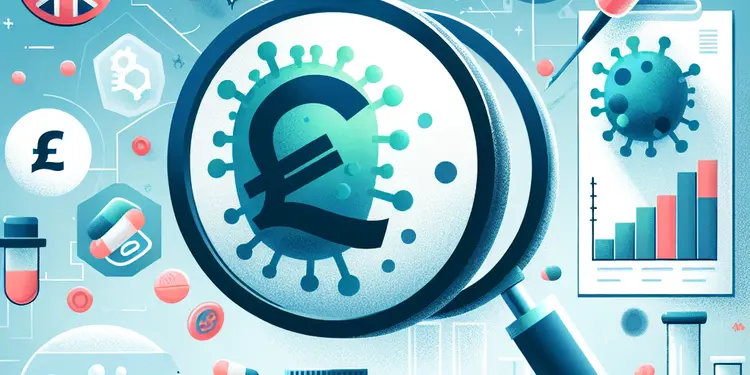
How is E. coli infection diagnosed?
Relevance: 66%
-
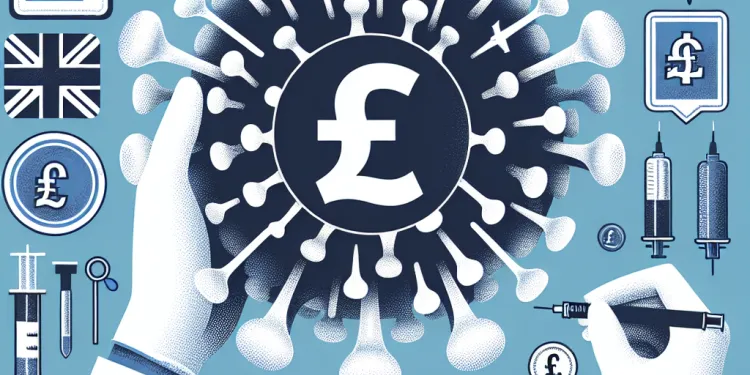
What is Chikungunya virus infection?
Relevance: 66%
-

Self care: Treating ear infections
Relevance: 65%
-

Do antibiotics work on viral infections?
Relevance: 64%
-
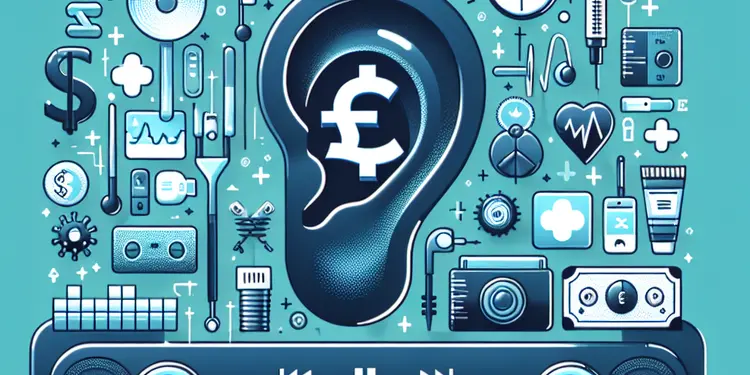
Can ear infections lead to tinnitus?
Relevance: 63%
-

Sexually transmitted infections STIs
Relevance: 63%
-

How is Chikungunya virus infection diagnosed?
Relevance: 63%
-
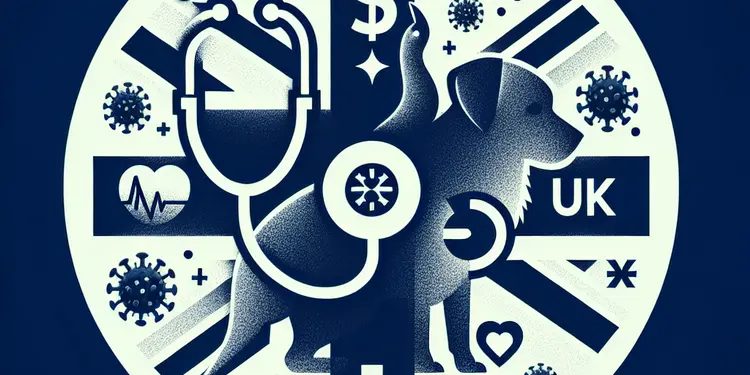
Can animals be infected with H3N2?
Relevance: 62%
-
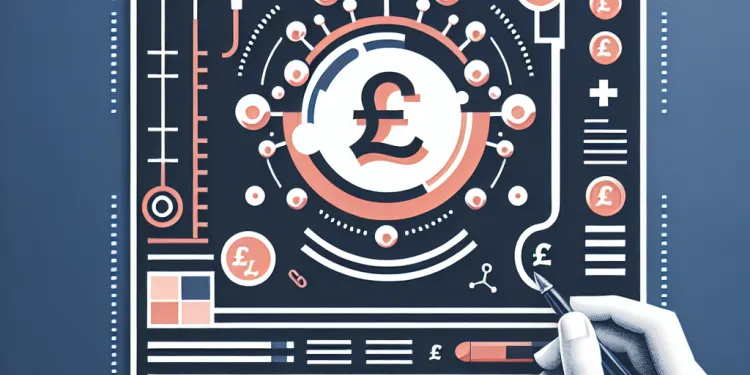
Can Chikungunya virus infection be treated?
Relevance: 62%
-
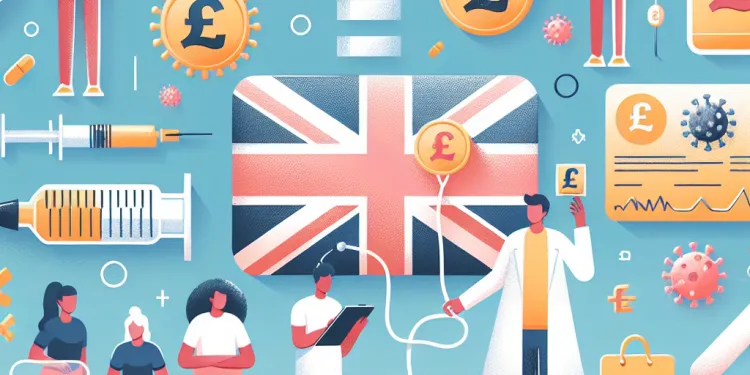
Who is at risk for severe Chikungunya infection?
Relevance: 60%
-
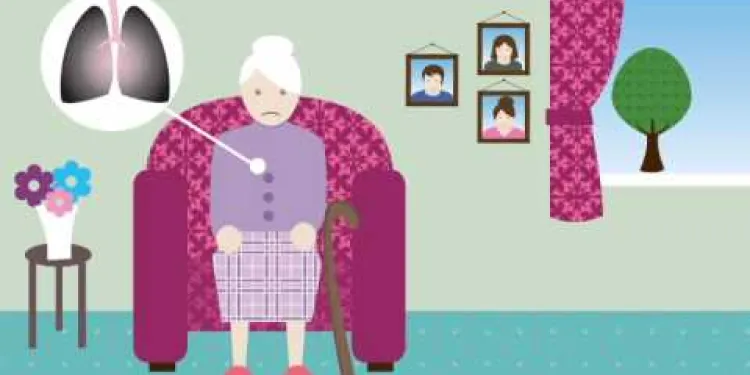
Dorothy's Story (Falls/Chest Infection)
Relevance: 60%
-
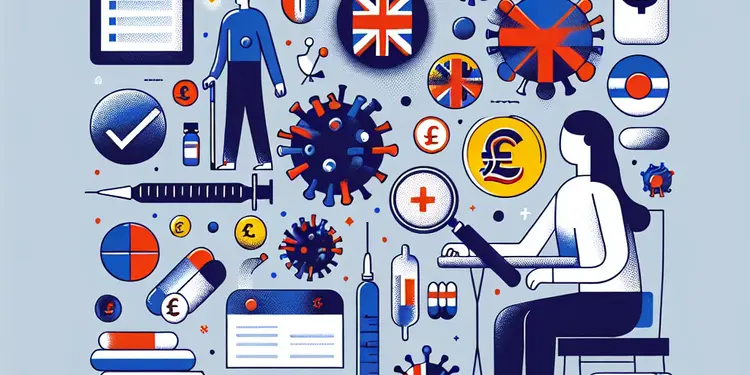
What role do infections play in chronic fatigue syndrome?
Relevance: 60%
-
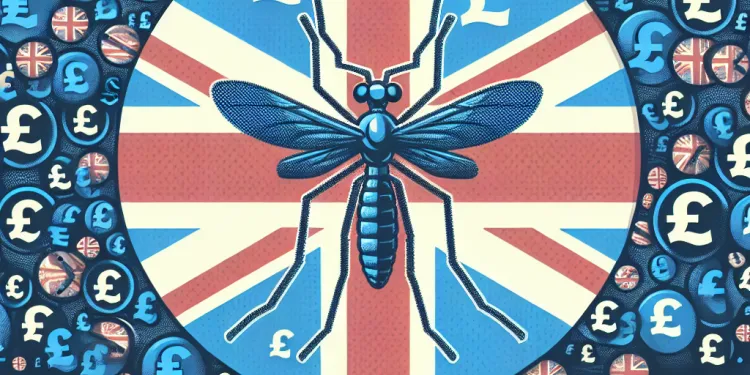
What are the symptoms of Zika virus?
Relevance: 59%
-
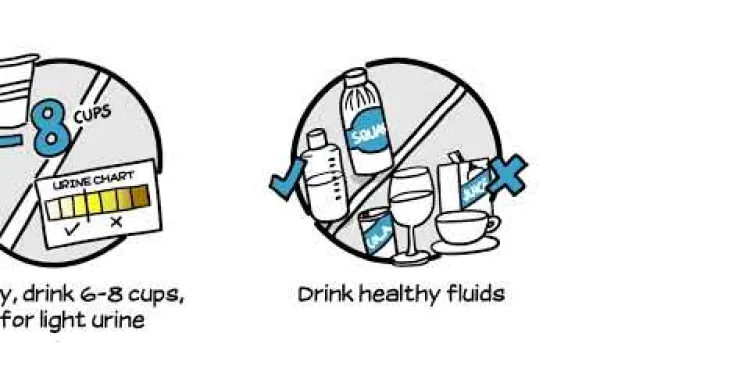
Avoiding infections with urinary incontinence
Relevance: 59%
-
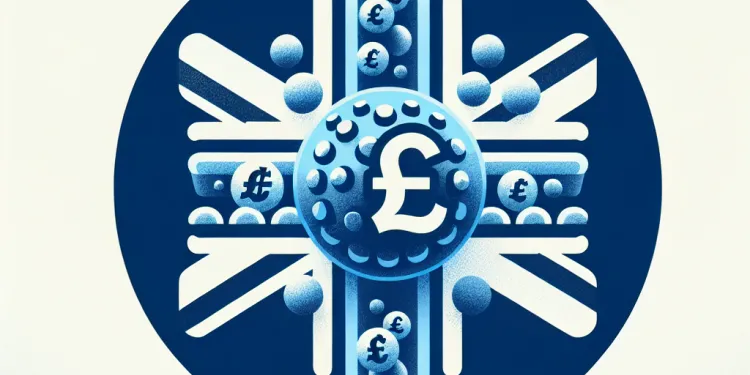
What are the symptoms of Rubella?
Relevance: 59%
-

Can gonorrhoea infect areas other than the genital organs?
Relevance: 58%
-
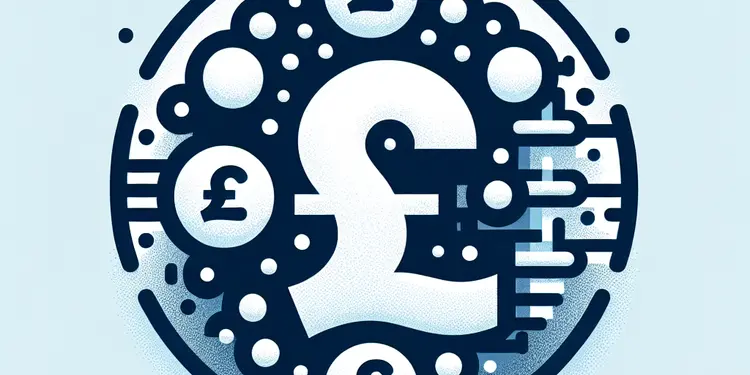
What are the symptoms of measles?
Relevance: 58%
-
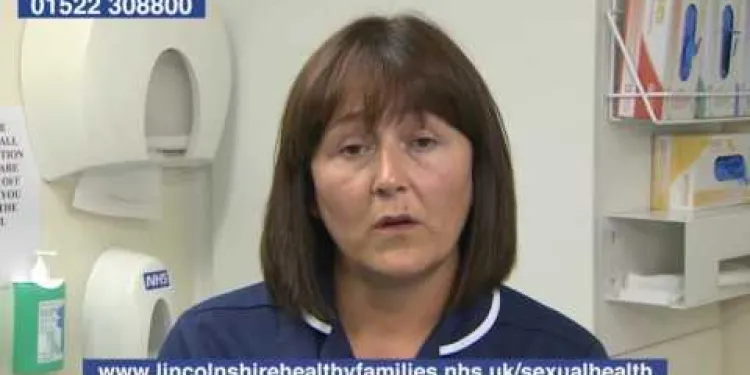
The symptoms of gonorrhoea
Relevance: 58%
-

Are there any long-term effects of Chikungunya infection?
Relevance: 58%
-
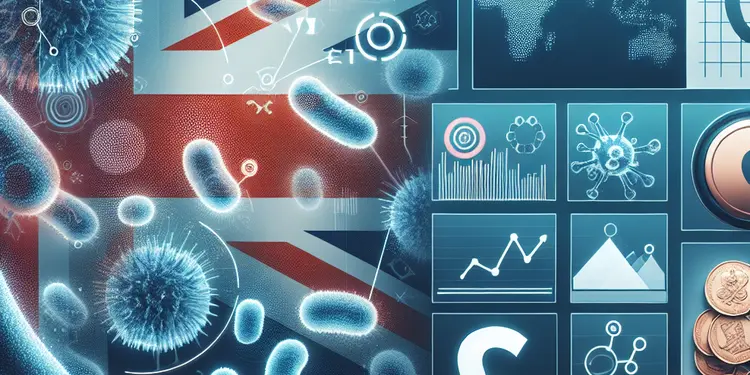
How do people get infected with E. coli?
Relevance: 58%
-
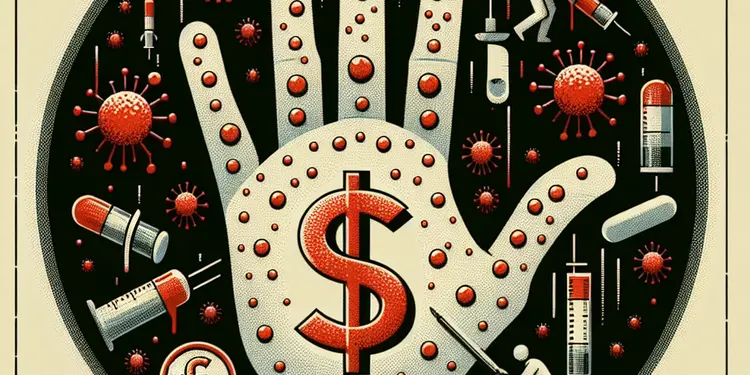
What are the symptoms of scabies?
Relevance: 58%
-

Podiatrist Fungal feet - fungal infection of skin and nails and how to prevent fungal infection in feet
Relevance: 57%
-
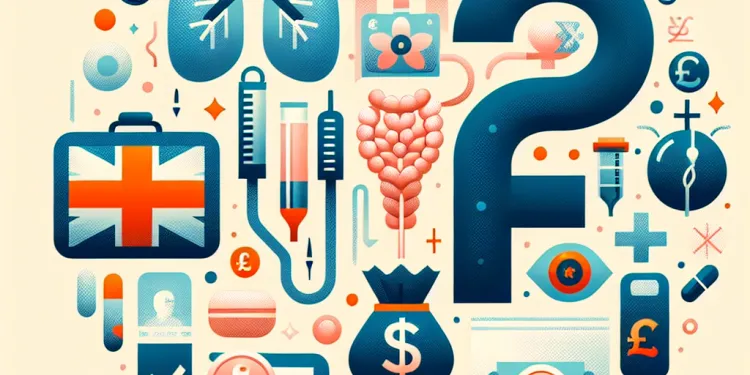
Can a stoma bag cause infections?
Relevance: 57%
-

Can men in the UK transmit Zika virus if infected?
Relevance: 56%
-

What should someone do if they suspect Nipah Virus infection?
Relevance: 56%
-

How can I prevent norovirus infection?
Relevance: 56%
-
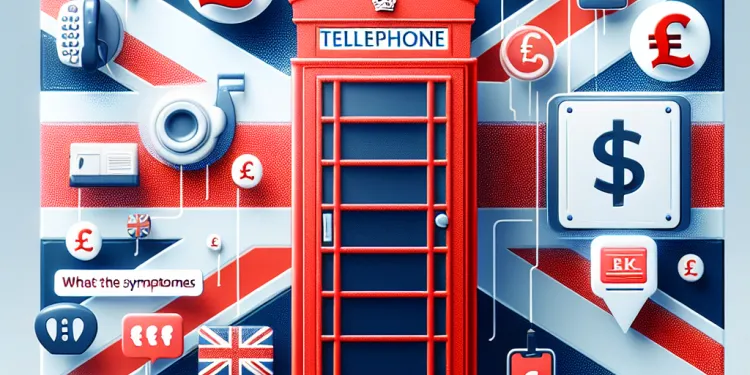
What are the symptoms of chickenpox?
Relevance: 56%
-
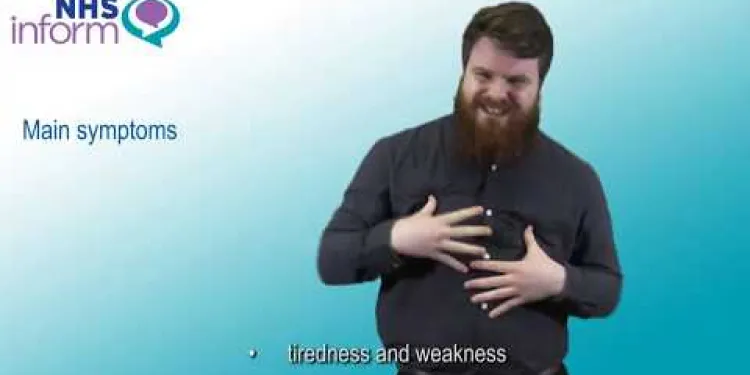
Symptoms of flu (influenza)
Relevance: 55%
-
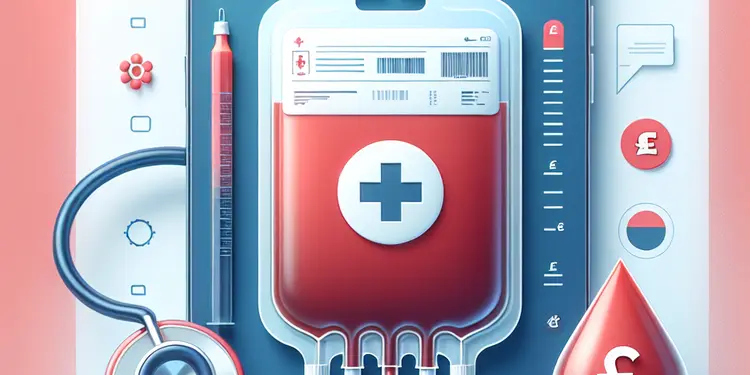
Can bacterial infections be transmitted through blood transfusion?
Relevance: 55%
-

What are the symptoms of measles?
Relevance: 54%
-
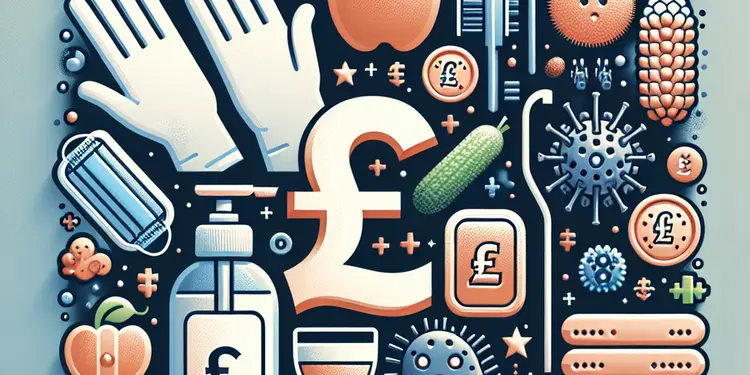
How can E. coli infections be prevented?
Relevance: 54%
-
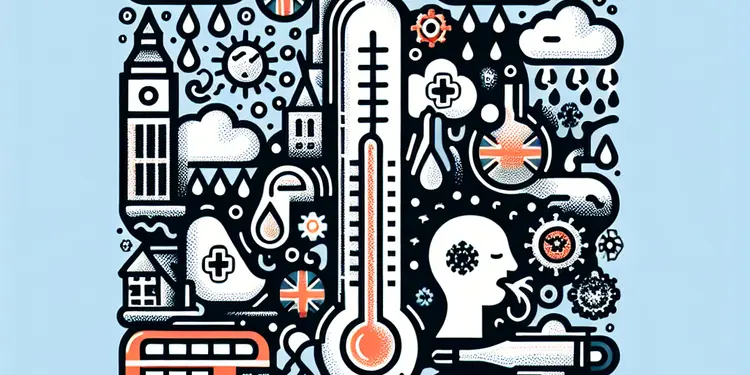
What are the symptoms of H3N2 flu?
Relevance: 53%
Introduction to Symptom Onset
Understanding how soon symptoms appear after infection is crucial for managing and controlling the spread of diseases. The time between exposure to a pathogen and the onset of symptoms is known as the incubation period. This period can vary significantly depending on the type of infection, the individual's health, and other factors. In this article, we will explore the incubation periods for common infections and provide guidance on what to expect.
Common Viral Infections
Viral infections can range from mild to severe, and the incubation period depends largely on the virus in question. For example, the common cold, usually caused by rhinoviruses, typically manifests symptoms within one to three days after exposure. Influenza, another respiratory infection, generally shows symptoms within one to four days. In the case of more severe viruses such as COVID-19, symptoms may appear between two to fourteen days following exposure. This variability highlights the importance of quarantine and monitoring during suspected cases, as delayed symptom onset can result in unintentional spread.
Bacterial Infections
Bacterial infections also have varied incubation periods. Strep throat, caused by Streptococcus bacteria, often presents symptoms within two to five days. Salmonella and E. coli, known causes of foodborne illness, can produce symptoms anywhere from a few hours to several days after ingestion. Tuberculosis, a more complex bacterial infection, can have an incubation period extending from weeks to even years, depending on the individual's health and immune system.
Parasitic and Other Infections
Parasitic infections such as malaria, transmitted by mosquito bites, typically show symptoms within seven to thirty days, but they can also remain dormant for much longer periods. For fungal infections like athlete's foot, symptoms might not be noticeable immediately and could take days or weeks to develop, especially if the individual is likely to miss initial mild symptoms.
Factors Affecting Incubation Periods
Several factors can influence how soon symptoms arise after an infection. The individual's immune response plays a crucial role; stronger immune systems might suppress or delay symptom appearance. The mode of transmission also affects incubation. Airborne diseases might spread faster than those requiring direct contact. Additionally, patient age, pre-existing conditions, and vaccination status can all impact symptom onset and severity.
Conclusion
Knowing when symptoms are likely to appear after infection is essential for early detection and treatment. While there is significant variability in incubation periods across different pathogens, understanding general time frames helps individuals and healthcare providers manage and reduce transmission. If you suspect you have been exposed to an infectious disease, monitoring your health closely and consulting with a healthcare provider can be vital steps in preventing further spread and ensuring timely treatment.
What Happens When You Catch a Germ?
It is important to know when you might start feeling sick after you catch a germ. This helps stop sickness from spreading. The time from catching a germ to feeling sick is called the "waiting time." This time can be different for each germ and person. Here, we will talk about how long it usually takes before you start feeling sick for some common germs.
Germs That Can Make Colds or Flu
Some germs can make you sick with a cold or the flu. How fast you feel sick depends on the germ. The cold is often caused by a germ called rhinovirus. You can start feeling sick with a cold 1 to 3 days after getting the germ. The flu usually makes you feel sick in 1 to 4 days. For COVID-19, you might feel sick 2 to 14 days after catching the germ. This is why staying home if you think you are sick is important, so you do not get others sick, too.
Germs That Are Bacteria
Some germs are bacteria. These germs can also take different amounts of time to make you sick. For example, strep throat, caused by a bacteria, can make you start feeling sick 2 to 5 days after catching it. Germs like Salmonella from bad food can make you sick in a few hours or maybe a few days. Tuberculosis is a bacteria that can take weeks or even years to make you sick.
Germs Like Parasites or Fungi
Some parasites, like those that cause malaria, can make you sick in 7 to 30 days after a mosquito bite. Sometimes, it takes even longer. Fungal infections, like athlete's foot, can take days or weeks before you notice you are sick.
Why Do Some People Get Sick Sooner?
Many things affect how quickly you get sick. If your body fights germs well, you might not get sick as soon. Germs in the air might get you sick faster than germs you need to touch to catch. Your age, if you have other illnesses, or if you had your shots can also change how quickly you get symptoms.
Why Is This Important?
Knowing when you might start to feel sick helps you and doctors react quickly. Different germs make you sick at different times, but if you know what to expect, you can stop the spread of germs. If you think you caught a germ, watch how you feel, and talk to a doctor if needed. This stops you from getting others sick and helps you get better faster.
Frequently Asked Questions
What is the incubation period for symptoms to appear after infection?
The incubation period can vary depending on the disease, but it usually ranges from a few days to a couple of weeks.
How soon do COVID-19 symptoms appear after infection?
COVID-19 symptoms typically appear within 2 to 14 days after exposure, with an average of around 5 days.
Can symptoms appear the day after infection?
While some viral infections can cause symptoms to appear quickly, most have an incubation period of at least a couple of days.
How quickly do flu symptoms develop after infection?
Flu symptoms usually develop 1 to 4 days after the virus enters the body.
How long does it take for common cold symptoms to show up after infection?
Common cold symptoms typically appear 1 to 3 days after infection.
Can someone be infectious before symptoms appear?
Yes, many infections can be transmitted before symptoms appear, which is why asymptomatic spread is possible.
Do all infections have the same incubation period?
No, different pathogens have different incubation periods ranging from hours to weeks.
When do symptoms of food poisoning usually appear after eating contaminated food?
Symptoms of food poisoning can appear anywhere from a few hours to several days after consuming contaminated food, depending on the type of pathogen.
How soon do chickenpox symptoms appear after infection?
Chickenpox symptoms usually appear 10 to 21 days after exposure to the virus.
What determines how quickly symptoms appear after infection?
The speed at which symptoms appear depends on factors such as the type of pathogen, the dose of exposure, and the individual's immune response.
Are there diseases with very short incubation periods?
Yes, some infections, such as certain types of bacterial food poisoning, can cause symptoms to appear within just a few hours.
How soon after a mosquito bite do symptoms of malaria develop?
Malaria symptoms typically develop 7 to 30 days after being bitten by an infected mosquito, depending on the species of Plasmodium.
Do symptoms always appear after infection?
Not always. Some infections can be asymptomatic or cause very mild symptoms that might not be noticed.
How quickly do symptoms of a urinary tract infection appear after exposure?
UTI symptoms can appear within 1 to 2 days after exposure to the bacteria.
Are incubation periods the same for everyone infected with the same pathogen?
No, incubation periods can vary among individuals due to differences in immune response, age, health conditions, and other factors.
How soon do symptoms of strep throat appear after infection?
Symptoms of strep throat usually appear 2 to 5 days after exposure to the bacteria.
Do symptoms of rabies appear shortly after being bitten by an animal?
Rabies symptoms typically appear 1 to 3 months after exposure, but incubation periods can range from several days to several years.
Can viral infections cause symptoms to appear faster than bacterial infections?
The speed at which symptoms appear can vary for both viral and bacterial infections, depending on the specific pathogen involved.
How soon after HIV infection do symptoms appear?
Some people may experience flu-like symptoms 2 to 4 weeks after infection, but others may not have symptoms for years.
How do incubation periods affect disease control measures?
Understanding incubation periods helps in designing quarantine measures and determining the timing of interventions to prevent disease spread.
How long does it take to feel sick after getting infected?
After you catch a germ, it takes some time before you feel sick. This time is called the "incubation period".
Using a calendar can help keep track of the days.
Support: Looking at pictures or using videos can help understand better.
The time it takes for someone to get sick after catching a disease is called the incubation period. This time can be different for each sickness. But most of the time, it takes a few days to a couple of weeks.
When do signs of COVID-19 show up after you get it?
COVID-19 is a sickness. After someone catches it, they might feel sick.
Signs like a cough or fever can start a few days after you catch the virus. Most people feel sick about 2 to 14 days later.
Here are some tips to help understand:
- Use tools like a calendar to count days.
- Ask someone you trust to help.
- Talk to a doctor or nurse if you feel sick.
When someone catches COVID-19, they might start to feel sick 2 to 14 days later. Most people start feeling sick in about 5 days.
Can you feel sick the day after you catch a germ?
If you catch a germ, you might feel sick the next day.
If you want help to understand your symptoms, ask someone you trust.
You can also use a symptom checker online for more help.
Sometimes, when viruses make us sick, we can feel bad very fast. But most of the time, it takes a few days before we start to feel sick after catching a virus.
How fast do flu symptoms show up after you get sick?
When you catch the flu, it takes 1 to 4 days to feel sick. This is how long for symptoms to start appearing after you get the virus.
Use tools like pictures or videos to help understand better. Ask someone for help if you need it.
After the flu virus gets into your body, you might start to feel sick in 1 to 4 days.
When do you start feeling sick after catching a cold?
When you catch a cold, you might start feeling sick 1 to 3 days later.
Can you pass on germs before you feel sick?
Yes, sometimes you can give germs to other people before you know you are sick. This means you can pass on an illness even if you don’t have a cough or a fever yet.
Here are some tips to help:
- Wash your hands often with soap and water.
- Try not to touch your face.
- If others around you are sick, give them some space.
Yes, some germs can spread before you feel sick. This means people can pass germs even if they do not show signs of being sick.
Do all infections take the same time to make you sick?
Not all infections take the same amount of time to make you feel sick. This time is called the "incubation period."
Different germs need different times. Some make you sick fast, like in a few hours. Others take longer, like a few days or even weeks.
If you have questions or feel worried, you can:
- Ask a doctor or nurse for help.
- Use simple and clear health websites.
- Watch videos that explain things in an easy way.
No, germs and bugs make people feel sick at different times. Some make you sick in a few hours, and some take days or even weeks.
When do you feel sick after eating bad food?
Food poisoning can make you feel sick. You might get sick a few hours after eating bad food. Or, it could take a few days. It depends on the germs that made the food bad.
When do you get chickenpox after catching it?
Chickenpox signs show up 10 to 21 days after you catch the virus.
What makes symptoms show up fast after getting sick?
How quickly someone gets sick can depend on a few things:
- The kind of germ.
- How much of the germ they are around.
- How strong their body can fight germs.
If you need help reading, you can use tools like screen readers. These can read the text out loud for you. You can also ask someone to explain it to you.
Do some diseases make you sick quickly?
Yes, some germs that make us sick, like bacteria in food, can make us feel bad just a few hours after we eat them.
When do you feel sick after a mosquito bite with malaria?
Malaria is a sickness you can get from a mosquito bite. After a mosquito bites you, it takes some time before you feel sick. This is called "developing symptoms."
When does this happen:
- You might start to feel sick in about 7 to 30 days.
- Some people might feel sick sooner, or it might take longer.
Here are some ways to make reading easier:
- Read slowly and take breaks.
- Point to each word with your finger as you read.
- Ask someone to read with you or explain parts that are difficult to understand.
You might feel sick with malaria 7 to 30 days after a mosquito with the disease bites you. Different types of bugs can change how long it takes to feel sick.
Do you always feel sick after you catch a bug?
No, not always. Sometimes, people don't feel sick when they have an infection. They might have very small signs that are hard to notice.
How soon do signs of a urine infection show up after you catch it?
A urine infection can start to show signs in 1 to 3 days after you catch it. Some people might notice signs sooner or later than that.
If you think you have a urine infection, it can help to talk to a doctor or nurse. You might need medicine to feel better.
Using reminders like sticky notes can help you remember to drink water. Drinking lots of water can help flush out the infection.
A UTI, or urinary tract infection, can make you feel sick quickly. You might notice signs or feel unwell in just 1 or 2 days after catching it.
Do all people get sick at the same time after catching the same germ?
When people catch a germ, they do not all get sick at the same time. How long it takes to feel sick is called the 'incubation period'. This can be different for each person.
Using a calendar can help you keep track of when you might start feeling sick. It can be helpful to use simple notes or pictures to remember what you learn about germs and getting sick.
No, the time it takes for someone to get sick can be different. This is because people have different bodies, ages, and health conditions. Everyone's body fights germs differently.
When do you feel sick after getting strep throat?
Strep throat is an illness that makes your throat hurt. You can catch it from someone who is sick. After you catch it, it takes a few days to feel sick. This is called the 'incubation period'. Some kids feel sick 2 to 5 days after they catch strep throat.
Here are ways to help if you feel sick:
- Rest a lot. Sleeping helps you get better.
- Drink warm drinks, like soup or herbal tea, to soothe your throat.
- Tell a grown-up how you feel. They can help you see a doctor.
Strep throat signs show up 2 to 5 days after you catch the germs.
Do signs of rabies show up soon after an animal bite?
If a rabid animal bites you, you might not see signs of rabies right away. It can take a few weeks to a few months for signs to show.
Some early signs are:
- Fever
- Headache
- Feeling tired
- Sore muscles
If you think you have rabies, see a doctor quickly. They can help you.
It might help to:
- Use simple words when talking about rabies.
- Use pictures or a story to explain what happens with rabies.
Signs of rabies usually show up 1 to 3 months after being bitten. But sometimes, it can take a few days or even years for symptoms to start.
Do virus germs make you sick faster than bacteria germs?
How fast you get sick can be different. It depends on the type of germs or bugs that make you sick.
When do signs of HIV show up?
Some people might feel sick like when they have the flu. This can happen 2 to 4 weeks after they get an infection. But, other people might not feel sick for a long time, even for years.
How do waiting times before a disease shows affect stopping it?
Some diseases take time to show signs. This wait time is called the incubation period.
Knowing the incubation period helps doctors and nurses stop the disease from spreading.
There are ways to make reading easier:
- Use pictures or diagrams to explain ideas.
- Listen to information read aloud with audio tools.
- Break information into small, simple parts.
These can help everyone understand better and stay safe.
Knowing how long it takes for someone to show signs of being sick helps us make rules to keep people safe. It also helps us decide when to do things to stop the sickness from spreading.
Useful Links
This website offers general information and is not a substitute for professional advice.
Always seek guidance from qualified professionals.
If you have any medical concerns or need urgent help, contact a healthcare professional or emergency services immediately.
Some of this content was generated with AI assistance. We’ve done our best to keep it accurate, helpful, and human-friendly.
- Ergsy carfully checks the information in the videos we provide here.
- Videos shown by Youtube after a video has completed, have NOT been reviewed by ERGSY.
- To view, click the arrow in centre of video.
- Most of the videos you find here will have subtitles and/or closed captions available.
- You may need to turn these on, and choose your preferred language.
- Go to the video you'd like to watch.
- If closed captions (CC) are available, settings will be visible on the bottom right of the video player.
- To turn on Captions, click settings .
- To turn off Captions, click settings again.
More Items From Ergsy search
-

Are there symptoms of an HPV infection?
Relevance: 100%
-

What are the symptoms of Nipah Virus infection?
Relevance: 92%
-

How soon do symptoms appear after infection?
Relevance: 88%
-

What are the symptoms of Chikungunya virus infection?
Relevance: 73%
-

Mycobacterium chimaera infection
Relevance: 70%
-

Are E. coli infections contagious?
Relevance: 67%
-

Chest infection: what should I do?
Relevance: 67%
-

Can E. coli infections be treated?
Relevance: 67%
-

How is E. coli infection diagnosed?
Relevance: 66%
-

What is Chikungunya virus infection?
Relevance: 66%
-

Self care: Treating ear infections
Relevance: 65%
-

Do antibiotics work on viral infections?
Relevance: 64%
-

Can ear infections lead to tinnitus?
Relevance: 63%
-

Sexually transmitted infections STIs
Relevance: 63%
-

How is Chikungunya virus infection diagnosed?
Relevance: 63%
-

Can animals be infected with H3N2?
Relevance: 62%
-

Can Chikungunya virus infection be treated?
Relevance: 62%
-

Who is at risk for severe Chikungunya infection?
Relevance: 60%
-

Dorothy's Story (Falls/Chest Infection)
Relevance: 60%
-

What role do infections play in chronic fatigue syndrome?
Relevance: 60%
-

What are the symptoms of Zika virus?
Relevance: 59%
-

Avoiding infections with urinary incontinence
Relevance: 59%
-

What are the symptoms of Rubella?
Relevance: 59%
-

Can gonorrhoea infect areas other than the genital organs?
Relevance: 58%
-

What are the symptoms of measles?
Relevance: 58%
-

The symptoms of gonorrhoea
Relevance: 58%
-

Are there any long-term effects of Chikungunya infection?
Relevance: 58%
-

How do people get infected with E. coli?
Relevance: 58%
-

What are the symptoms of scabies?
Relevance: 58%
-

Podiatrist Fungal feet - fungal infection of skin and nails and how to prevent fungal infection in feet
Relevance: 57%
-

Can a stoma bag cause infections?
Relevance: 57%
-

Can men in the UK transmit Zika virus if infected?
Relevance: 56%
-

What should someone do if they suspect Nipah Virus infection?
Relevance: 56%
-

How can I prevent norovirus infection?
Relevance: 56%
-

What are the symptoms of chickenpox?
Relevance: 56%
-

Symptoms of flu (influenza)
Relevance: 55%
-

Can bacterial infections be transmitted through blood transfusion?
Relevance: 55%
-

What are the symptoms of measles?
Relevance: 54%
-

How can E. coli infections be prevented?
Relevance: 54%
-

What are the symptoms of H3N2 flu?
Relevance: 53%


